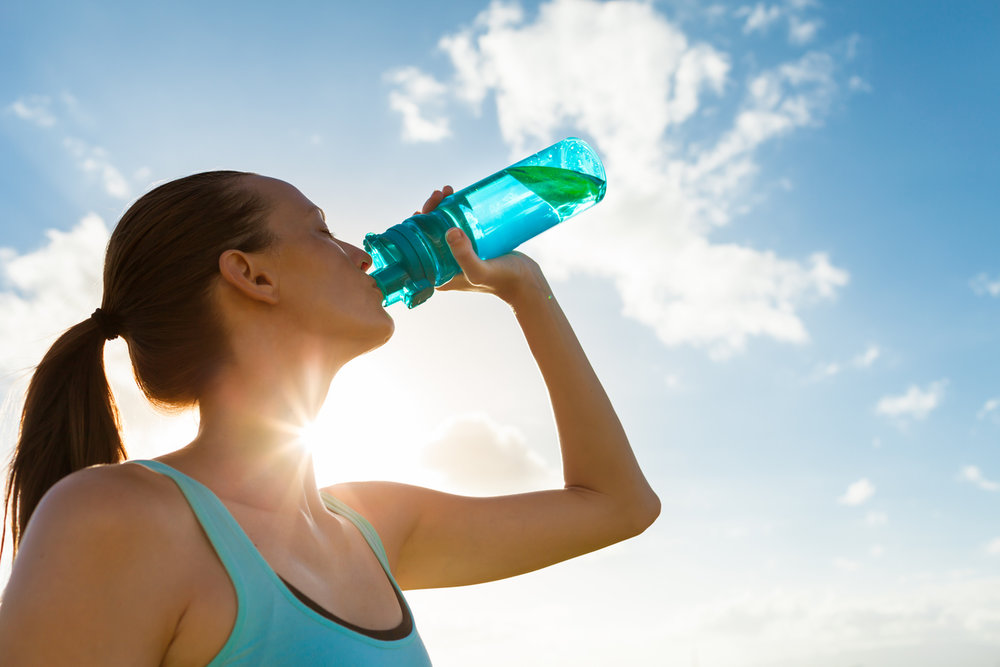If you suffer headaches, feel fatigued, or suffer muscle pains and cramp, you might be dehydrated! It’s surprisingly easy to ignore your body’s needs and allow your water levels to drop. The symptoms of dehydration can go from uncomfortable to dangerous quickly – starting with a feeling of thirst and a dry mouth, then a headache, and escalating to mental confusion and even unconsciousness. It’s easy to tip over the edge into serious dehydration, especially if you don’t regularly take care of your fluid levels – it takes only one hot day, a testing workout or even a hangover to push your body too far. When you’re on holiday hydration is far from a priority, so look at these times when your actions or environment stress your body or you’re not thinking about your wellbeing.
 Today we’re looking at how you can rehydrate, so you can avoid that risk – and enjoy a better quality of life day to day!
Today we’re looking at how you can rehydrate, so you can avoid that risk – and enjoy a better quality of life day to day!
What Do You Need?
If you’re feeling thirsty, then you might think the best solution is a drink – but not all drinks are created equal! Some popular drinks contain diuretics, compounds that encourage your body to shed water. While these don’t always dehydrate you more than they rehydrate you, if you’re seriously thirsty then tea, coffee or alcoholic drinks aren’t the best choice.
It might surprise you to learn that pure water also isn’t necessarily the best choice. That’ll quench your thirst, but if you’re seriously dehydrated you haven’t just lost water. You’ve also lost the electrolytes dissolved in that water! Electrolytes are a group of soluble salts that your body uses for all sorts of vital jobs – they help to regulate fluid levels in your cells, transmit nerve signals from your brain to your muscles, even regulate your mood! Sometimes, you need an electrolyte top up as well, and it’s well worth keeping a set of rehydration sachets or tablets in your medicine cabinet or gym bag.
When to Top Up Your Electrolytes
Day to day thirst can be taken care of with a glass of water – or, perhaps less healthily, your soft drink of choice. Let’s take a look at some of those more serious cases where you might need to specifically recharge your electrolyte levels too.
- Illness
Sickness, whether you’re suffering from diarrhea and vomiting, or sweating out a fever, can dehydrate you, and it can be hard to separate the symptoms of the disease from the symptoms of dehydration. Drink plenty of fluids and regularly take rehydration products to aid your recovery.
- Hangovers
A hangover can come with many of the symptoms of illness, as well as having its own diuretic effect. Much of what constitutes a hangover is due to dehydration – the dry mouth, dizziness, headache can all be treated by taking a rehydration product like after drinking alcohol.
- Exercise
Your workout routine can have a powerful dehydrating effect: exercise raises your body temperature and causes you to sweat. As your body works harder you lose more and more water – and the associated electrolytes. Most serious athletes have a hydration strategy to make sure they top up both fluid and electrolyte levels before and after they work out – and sometimes during as well!
Leave a Reply